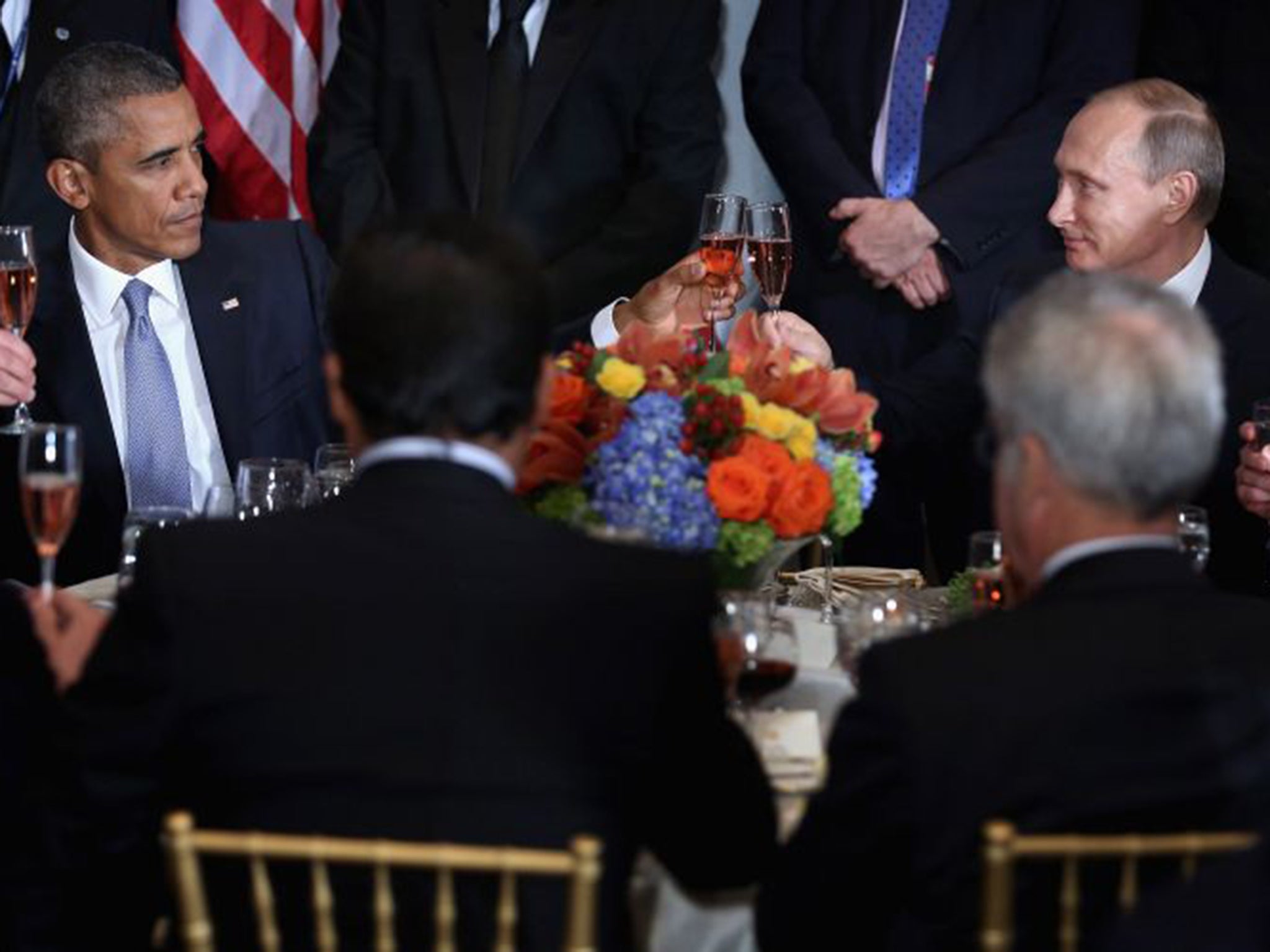Speeches hint at common ground, but US and Russia are still poles apart
In the event, the running order at the UN 70th anniversary debate worked to the advantage of President Obama, forcing Mr Putin onto the defensive


When the order of speakers for the first day of the UN’s 70th anniversary debate was announced, it was widely expected that President Obama would be at a disadvantage, as he would have to speak before some of the other key players scheduled for the first day: the Chinese President, Xi Jinping; the President of Iran, Hassan Rouhani, but most of all, the President of Russia, Vladimir Putin.
In the event, the order worked to the US President’s advantage, allowing him to roam freely between the specific – support for the Kiev government in Ukraine; a restatement of why the US was so reluctant to do anything that might shore up Syria’s President, Bashar al-Assad – and the high-flown generalities about rights, sovereignty and freedom that he talks about so persuasively, and which suit the UN forum so well.
An hour or so later, it was Russia’s President who found himself on the defensive, in effect forced to respond to so clear a statement of US (and Western) positions. But forecasts that he would not come to the UN empty handed were also borne out. The centrepiece of Mr Putin’s speech – crisply written and at times fiercely delivered – was a proposal for a broad united front against Isis in Syria, which would presuppose the involvement, in some capacity at least, of what the Russian president described as the “legitimate government” of Assad.
Mr Putin defended Russia against criticism that it resorted to its Security Council veto too often, saying that the UN had been set up in such a way as to permit expression of disagreement. He noted, too, the “tragic” results of Western intervention in Iraq and Libya, which he said had helped foster terrorism in general and Isis in particular, as well as precipitating the current flows of refugees.
Addressing Western concerns about recent military deliveries to Syria, Mr Putin denied that they had anything to do with Russian “ambition”. Russia’s one concern, he said, was to strengthen the Syrian state, as it, and the Kurds, were the only forces capable of countering Isis, and he warned of anarchy across the region if they failed.
Whether his initiative will be taken up is another matter. It is true that Mr Obama had said in his speech that the US was ready to cooperate with anyone – specifically including Russia and Iran – to oppose Isis. But his condemnation of Assad, with its reminder of how the conflict in Syria began, with Mr Assad’s use of force against peaceful protest, does not leave a great deal of common ground.
If there is a slight chance that there could be some convergence on Syria, there was no meeting of minds whatsoever on Ukraine. While Mr Obama talked about freedom, Mr Putin reiterated Russia’s official view that Viktor Yanukovych was overthrown in a Western-sponsored coup, and that the Ukraine crisis was the logical consequence of what happens when the West showed contempt for Russia’s genuine interests.
How far that matters – so long as neither side demands any linkage between Ukraine and Syria – is a moot point.
The Minsk II agreement is largely holding, and a fragile settlement of sorts could still be possible.
The difficulty is that the continuing stand-off over Ukraine hardly creates an atmosphere conducive to cooperation elsewhere.
Nor did Mr Putin particularly help his case with an opening passage that looked back to the Yalta Conference as the basis of the post-Second World War settlement. Given that he offered no hint of any concession on Russia’s annexation of Crimea, he might have done better not to bring Yalta into his argument at all.
Join our commenting forum
Join thought-provoking conversations, follow other Independent readers and see their replies
0Comments